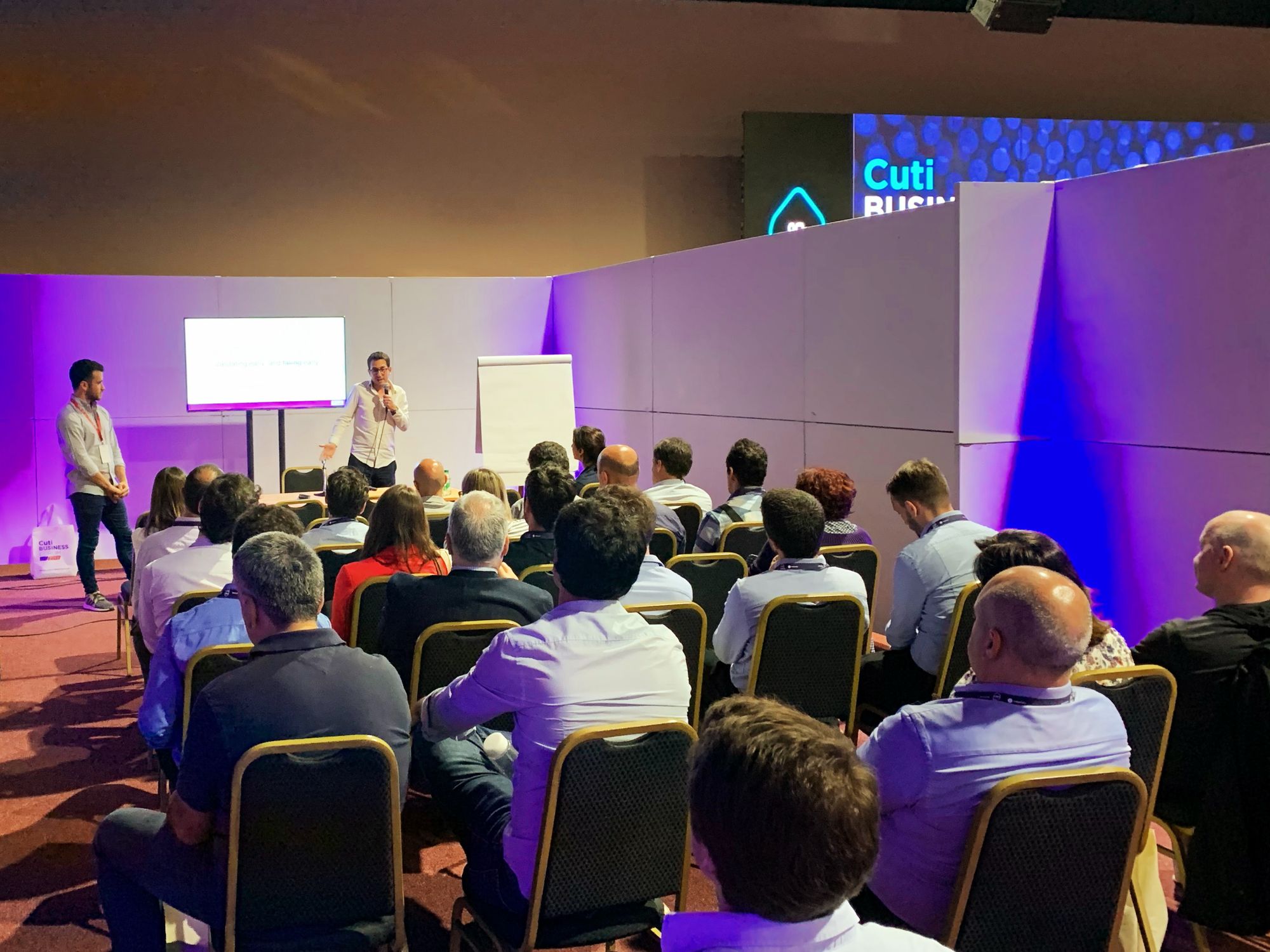Last week we were invited to give a talk at an important Tech Business Forum. Giving a conference is not an easy job, planning it requires plenty of time and organization, so we made up a small guide to help ourselves. Here's our guide so that you can use it if you need help with your own talk.

Conference Plan Guide
- Planning and giving a talk takes a lot of time, so, before anything, you need to make sure being there is worth it. Ensure that the event is suitable for you: where you are will communicate who and what you are, you don't want to be in certain places that don't go with your business philosophy, for example. Communication isn't only on advertising, everything about your business talks, so you need to know how you want your brand to be perceived. Also, make sure the attendants are relevant for your business or that you are relevant for them. Being there is a time, money and energy investment, if the attendants are not relevant for your business or not interested in the topic you'll be dealing with, it's just not worth it.
- Once you make sure you want to be there, it's time to justify why. You may find this stupid, justifying your answer sounds like a high school test. However, once you understand why you're there, you will clarify and establish your objectives. Many workshops are a waste of time because there's no clear goal. Without this clear goal, getting people together just doesn't make sense.
- Once you have your objectives clear, it's time to define the content. You should choose something you're interested in, the audience will notice if you're really passionate about it or if you're just there for marketing. Choose something that makes you want to discuss, explore, something that motivates you. At the same time, the topic must add value to the audience. You should take into account who your audience is going be, what may add value to them and the outcome you desire for them. It's important to choose one specific subject: you can't deal with hundreds of subjects at one time. Specify only one topic, whatever it is, your audience should understand it and internalize it completely. Be generous with the content, the objective is for people to learn and use what you said. Don't save your secrets ingredients just for you, I promise telling them won't make you loose your job, instead, it will make your business grow.
- Before starting to write, define the tone based on the style of the event, the audience and your business profile. The tone you set will talk a lot about your business. It can either be formal, informal, funny, philosophical, motivational, technical, not technical, etc.
5. It's time to get your hands dirty. There's no unique formula at the time of writing down your speech. In our case, we wrote down a list of those things that had to be in the presentation and wrote over these important items.
6. Once your speech is done, plan the visual aids. We decided to go with a digital presentation, with not much text, that went with our brand's visual identity. Presentations fulfill two functions: it helps your audience understand and internalize what you're saying, and it aids you to remember and follow the thread.
- Practice, practice and practice! While you do, think of jokes and comments that may engage the audience, even more.
Some recommendations
- Keep in mind that everything communicates: the location, ambiance, clothes, colors, visual aids, the speaker's vibe, energy, etc.
- Don't save the best for the end, try engaging the audience adding value during the whole presentation, texto posterior
- Recommend to your audience extra material: authors, books, workshops, webpages, apps, etc.
- Include humor: no matter how serious the topic is; jokes, gifs, memes, funny videos, they always work to break the ice and commit the audience. You can use various video editing tools to overlay a picture on a video.
- Connect the offline with the online, make use of the advantages of both worlds. You can, for example, publish your talk (or part of it) in social media, or plan online activities with the audience.
- Stay in touch with your audience. Ask them or try to find their emails or social media.. It's a group of people interested in you and your business, so they may be interested in receiving newsletters.
- Extend the conference experience giving people something to take with them. At our workshop we gave people brochures with a summary of the workshop's content and merchandising with our brand.
- Allow the audience to discuss, share their opinions and ask their questions.
- Depending on the time you have and the size of the group, you can include group activities. This will promote participation, engagement and concentration.
- Don't underestimate your audience. It's really not good when speakers are obviously selling their brand or product. That's not adding value, and it's not even marketing. The audience will realize if you're there to sell your brand, or if your objective is really adding value to attendants. If your topic is interesting and you're adding value to the audience, it will genuinely be good for your brand.
Hope this guide and tips are useful for your talk!


